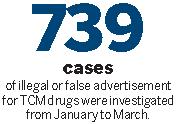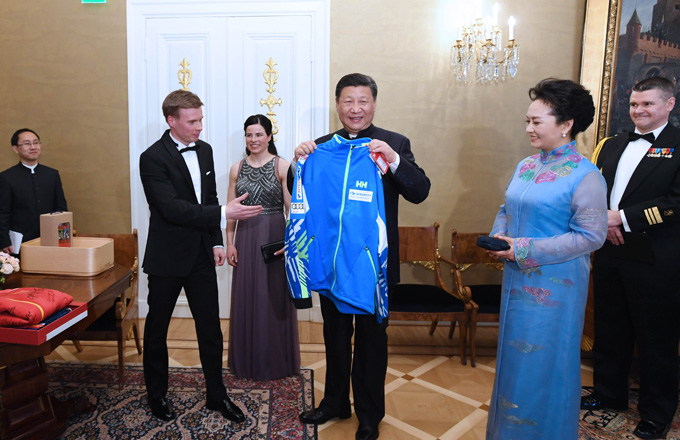TCM seeks cure for false ads
Patients' health at risk from illegal advertisements
Time-honored traditional Chinese medicine and related medical services have been hit hard by false or illegal advisements, according to the country's top TCM authorities.
Ma Ying, director of the department of policies, regulations and supervision of the State Administration of Traditional Chinese Medicine, revealed at a news conference on Thursday that they had detected more than 9,900 such misleading advertisements by the end of 2012.
The department is mainly responsible for keeping TCM medical services in order, as well as overseeing and guiding the assessment of medical advertisements on TCM.
Starting in 2008, the department launched a surveillance network targeting TCM-related advertisements in the mass media.
"Related medical institutions caught with improper media hype or even false advertisements would be made public and punished," Ma said.
"Such practices seriously affect patients' rights to quality TCM services."
By the end of 2012, some 534 TCM medical institutions had been warned and fined, and 324 suspended from practice. Another 13 had their licenses revoked, he said.
"The severe punishment paid off and the false and illegal advertisement in TCM has been decreasing," he noted.
"However, the new trend is that some are circumventing laws and regulations by posing as news reports and public lectures," he pointed out.
Wang Lian, spokesman of the administration, said this avoided regulation by TCM authorities but could still mislead the public.

From January to March, 739 false or illegal advertisements for TCM drugs and medical services were caught by the surveillance network.
"Some 99 percent of them are disguised as forms other than advertisements," he noted.
Ma Ying alerted the public of such practices and vowed to introduce more targeted intervention efforts.
In false and illegal advertisements, the hospital tended to boast of alleged award-winning specialists and special or unique remedies for certain diseases, he added.
According to surveillance results, such false advertisements mainly focused on common chronic diseases like hypertension and diabetes, and severe conditions like cancer, which are difficult to cure.
Notably, the Internet has become a rising outlet for such false TCM promotion, Ma noted.
In response, supervision of TCM-related websites has been strengthened, he said.
Some 670 websites found to have illegal TCM advertisements have been shut down during the first quarter of the year, he noted.























